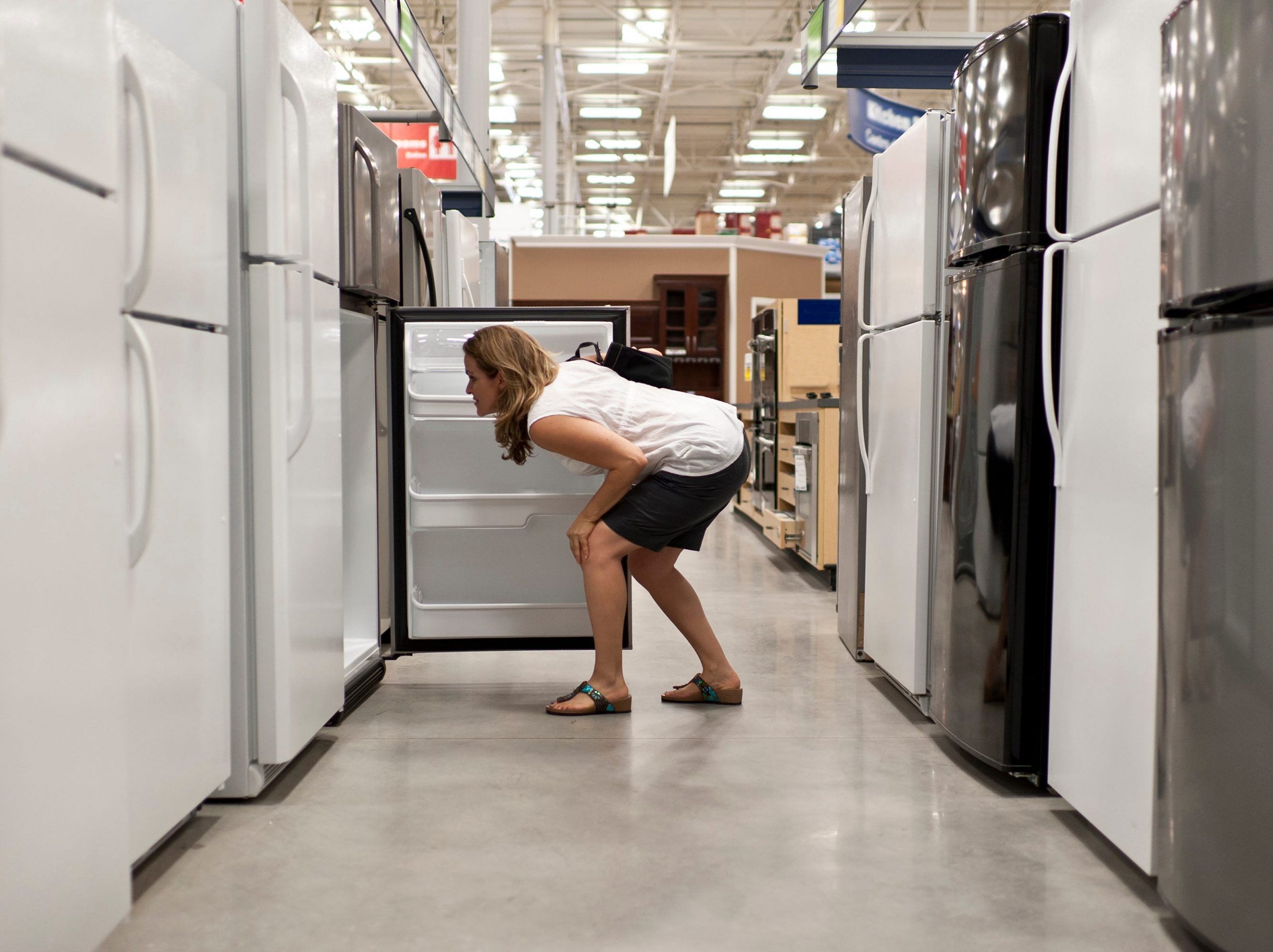
- Wealthy homeowners are dropping nearly $40,000 on luxury stoves that have a three-month wait time.
- It's a symptom of a broader appliance shortage that began last spring.
- The shortage is due to surging demand, pandemic-related supply chain issues, and a chip shortage.
- See more stories on Insider's business page.
Many wealthy homeowners have spent the pandemic renovating their multimillion-dollar homes, and it's led to skyrocketing demand for appliances – including a certain $40,000 stove.
The New York Times' Guy Trebay reported on the real estate boom among the rich and the surge in redecorating and renovating that followed. Interior designers are being flooded with requests to take on new jobs, realtors are booking tens of millions in sales, and decorators are sourcing sectional sofas that cost as much as $31,000.
And when it comes to appliances, the entry-level options won't do. According to The Times, demand for items like Sub-Zero refrigerators, $4,000 ice machines, and high-end Wolf ranges surged in the third quarter of 2020.
The "must-have range" for 2021, a French range called the La Grande Cuisine 2000, has six gas burners, two ovens, and an electric griddle, and has a stylish matte and copper finish. It costs almost $40,000 and there's a three-month wait-time to get it, the company that makes it, L'Atelier Paris, told The Times.
Appliances are in high demand, and the shortage isn't letting up
While the wait time on a $40,000 stove affects a small subset of consumers, a broader appliance shortage is hampering homeowners across the country. Beginning last fall, many Americans embarked on home improvement projects ahead of a winter stuck indoors. It put a strain on appliance-makers, who struggled to keep up with the uptick in demand.
Executives from Swedish appliance giant Electrolux said on a conference call in October that it had entered the quarter with "unusually low inventory levels," despite higher production levels.
"The increased time spent at home during the pandemic has resulted in more intensive use of appliances and higher share of household budgets allocated to home improvement," executives said at the time.
Whirlpool, the other largest appliance-maker next to Electrolux, also pointed to high demand last fall. Whirlpool chief financial officer James Peters said in October that the company's order backlog was "very high."
While demand for appliances amid a home improvement boom is partially to blame, external factors are also making it difficult to buy new appliances. Factories shut down in the early months of the coronavirus last spring, slowing down production of new dishwashers and refrigerators. At the same time, wealthy homeowners started buying up extra appliances like freezers in order to stockpile groceries. At stores like Home Depot and Best Buy, freezers were sold out entirely or back-ordered for months at a time.
The shipping and logistics industries were strained last year too, leading to national chains like Lowe's shifting their models to direct-to-consumer deliveries. And an ongoing chip shortage means that appliance makers who offer items with smart capabilities are feeling the strain.
Jason Ai, the president of Whirlpool in China, told Reuters in March that the company was facing "a perfect storm" of high demand and shortages. He told Reuters that Whirlpool has had a difficult time sourcing the processors that power more than half of its product lineup, including washing machines, microwaves, and refrigerators, according to Reuters.
"On the one hand we have to satisfy domestic demand for appliances, on the other hand we're facing an explosion of export orders," Ai told Reuters. "As far as chips go, for those of us in China, it was inevitable."
Even after over a year of the pandemic, industry insiders don't expect the shortages to let up anytime soon. Appliance store owners in various parts of the US warn that issues with supply could extend for several more months.
"Do not wait until the last minute if you're trying to build a house or are shopping for appliances," Paul Klein, the owner of an appliance store in Louisiana, told NOLA.com. "Get your order in now because I don't think it's going to get better until 2022."
